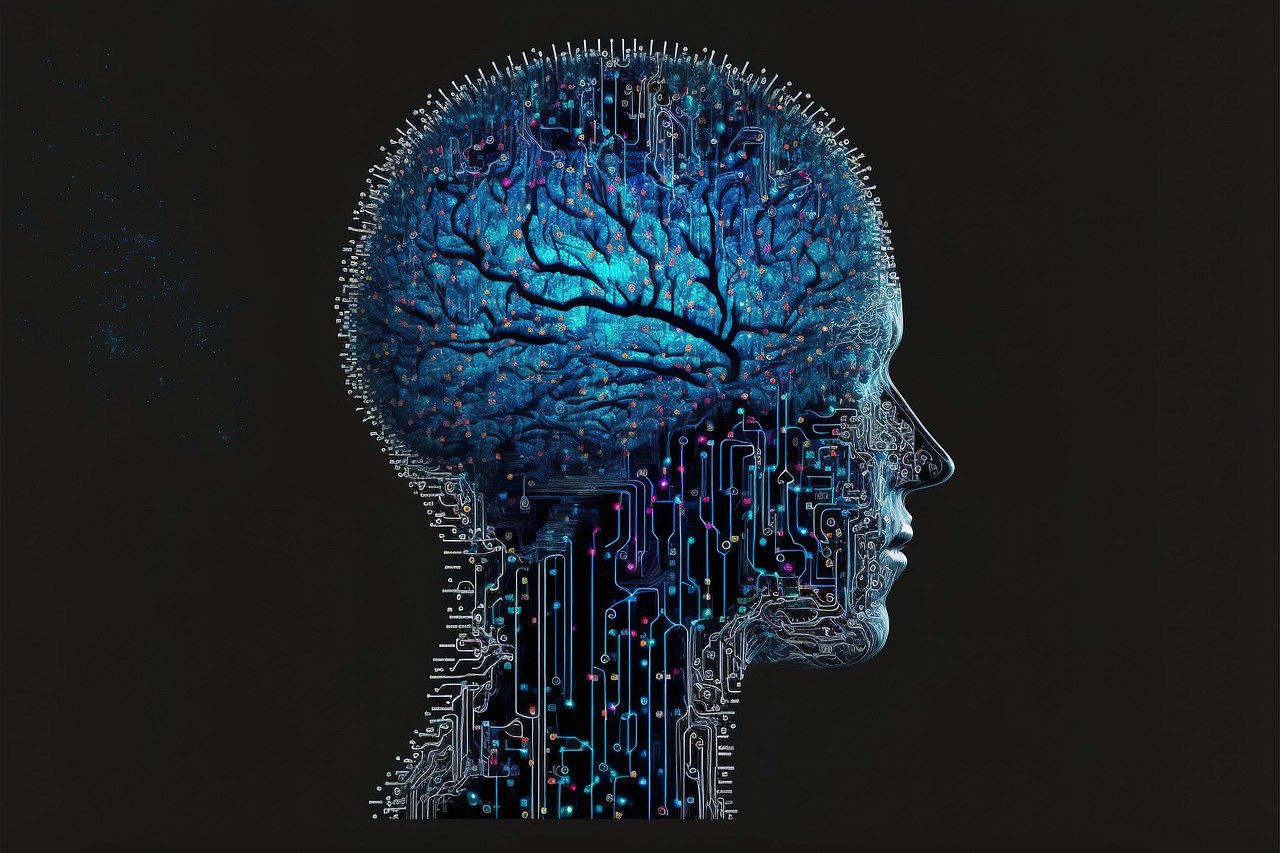The Role of Blockchain in Smart Contracts
In today's fast-paced digital world, the concept of smart contracts is revolutionizing the way we think about agreements and transactions. Imagine a world where contracts execute themselves without the need for a middleman, where trust is built into the very fabric of the agreement. This is the promise of blockchain technology, which serves as the backbone for smart contracts. By leveraging the unique properties of blockchain, these self-executing contracts can automate and enforce terms seamlessly, providing a level of security and efficiency that traditional contracts simply cannot match.
So, what exactly are smart contracts? At their core, they are self-executing contracts with the specific terms of the agreement directly written into code. This means that when certain predetermined conditions are met, the contract executes automatically. Think of it as a vending machine: you insert your money, select your item, and the machine delivers it without any human intervention. This automation reduces the need for intermediaries, cutting down costs and speeding up processes.
The transformative potential of smart contracts is immense. They can be applied across various industries, from finance and real estate to supply chain management and healthcare. For instance, in real estate, smart contracts can streamline property transactions by automatically transferring ownership once payment is received, eliminating the need for extensive paperwork and reducing the risk of fraud. In supply chain management, they can enhance transparency by automatically recording each step of the product journey, ensuring accountability among all parties involved.
However, the journey to widespread adoption of smart contracts is not without its challenges. Legal recognition varies by jurisdiction, and many businesses are navigating the complexities of integrating these contracts into existing systems. Moreover, technical limitations such as scalability and interoperability must be addressed to ensure that smart contracts can operate efficiently and effectively across different platforms.
As we look to the future, the potential for smart contracts to transform industries is exciting. With ongoing advancements in blockchain technology and the development of supportive regulatory frameworks, we are likely to see a surge in the adoption of smart contracts. They represent a shift towards a more automated, transparent, and trustworthy way of conducting business, and as more organizations recognize their value, the landscape of agreements and contracts will undoubtedly change.
- What is a smart contract? A smart contract is a self-executing contract with the terms directly written into code, allowing for automatic execution when conditions are met.
- How does blockchain enhance smart contracts? Blockchain provides a decentralized and secure environment, ensuring that contract data is immutable and reducing the risk of fraud.
- What are the main challenges facing smart contracts? Challenges include legal recognition, technical complexities, and the need for standardization across different systems.
- What industries are using smart contracts? Smart contracts are being utilized in finance, real estate, supply chain management, healthcare, and more.

Understanding Smart Contracts
Smart contracts are a revolutionary concept that has emerged from the intersection of blockchain technology and legal agreements. Imagine a contract that not only defines the terms of an agreement but also automatically executes those terms without the need for human intervention. That's precisely what smart contracts do! They are self-executing contracts where the terms are directly embedded into code, ensuring that once the predetermined conditions are met, the contract is enforced automatically. This innovative approach minimizes the need for intermediaries, such as lawyers or notaries, thereby streamlining the entire process.
To better understand smart contracts, let's break down their fundamental components:
- Code-Based Agreements: The terms of smart contracts are written in programming languages, typically Solidity for Ethereum. This coding ensures that the contract is executed exactly as intended.
- Automatic Execution: Once the conditions of the contract are satisfied, the smart contract executes itself. For instance, if a payment is made, the contract can automatically transfer ownership of a digital asset.
- Transparency: Since smart contracts are stored on a blockchain, all parties involved can view the contract and its execution, fostering trust and accountability.
One of the most significant advantages of smart contracts is their ability to reduce the potential for disputes. Traditional contracts often rely on human interpretation, which can lead to misunderstandings or disagreements. In contrast, smart contracts operate on a clear set of rules coded into the blockchain, which are unchangeable once deployed. This immutability ensures that all parties have a consistent understanding of the agreement, significantly lowering the chances of conflict.
Furthermore, smart contracts can be utilized across various industries, transforming how transactions are conducted. For example, in real estate, a smart contract could facilitate the buying and selling process by automatically transferring property titles once payment is confirmed. In supply chain management, smart contracts can track goods and release payments when shipments reach their destination, enhancing efficiency and reducing delays.
However, while the benefits of smart contracts are substantial, they are not without challenges. The technology is still relatively new, and many stakeholders are unaware of how to implement it effectively. Additionally, the legal status of smart contracts varies by jurisdiction, which can complicate their use in different countries. As businesses begin to explore the potential of smart contracts, understanding these complexities will be crucial for successful implementation.

How Blockchain Enhances Security
When we think about security in the digital world, it often feels like a game of cat and mouse. Hackers are constantly trying to breach systems, while developers work tirelessly to fortify them. This is where blockchain technology steps in like a superhero, bringing a level of security that is hard to match. One of the most significant advantages of blockchain is its decentralized nature. Unlike traditional systems that rely on a central authority, blockchain distributes data across a network of computers, making it incredibly difficult for any single entity to manipulate or corrupt the information.
Imagine a public library where instead of one librarian keeping all the books, every visitor has a copy of every book in the library. If someone tried to change a book, they would have to change it in every single copy, which is nearly impossible. This analogy illustrates how blockchain works: every participant in the network has access to the same information, and any changes must be agreed upon by the majority, ensuring that the data remains immutable and trustworthy.
Another crucial aspect of blockchain security is the use of cryptographic techniques. Each transaction on the blockchain is secured using advanced cryptography, which ensures that the data is not only safe from unauthorized access but also verifiable. This means that once a contract is executed, it cannot be altered or tampered with, providing a permanent record that is essential for both parties involved. In a world where trust can often be in short supply, this transparency is a game-changer.
Decentralization is more than just a buzzword in the blockchain realm; it fundamentally changes how trust is established between parties. In traditional contracts, we often rely on intermediaries such as lawyers or banks to ensure that the terms are met. However, with smart contracts on a blockchain, the need for these middlemen is significantly reduced. This fosters a sense of trust among parties who may not know each other well or who might be located on opposite sides of the globe. When you know that the contract is enforced automatically and transparently, it builds a level of confidence that is hard to achieve through conventional means.
At the heart of blockchain security are consensus mechanisms. These are the protocols that validate transactions and ensure that all parties agree on the state of the contract. Think of it as a group of friends deciding on a restaurant; everyone has to agree before the decision is made. In the blockchain context, this consensus is achieved through various methods, such as Proof of Work or Proof of Stake. These mechanisms not only enhance transparency but also ensure that all participants are held accountable, which is critical in any contractual agreement.
Once a transaction is recorded on the blockchain, it becomes part of a permanent and verifiable record. This immutability is vital for dispute resolution and maintaining the integrity of agreements. Imagine signing a contract that you later wish to modify. In traditional systems, this might involve lengthy negotiations and amendments. However, on the blockchain, the original contract remains unchanged, while any new agreements can be documented as separate transactions. This ensures clarity and reduces the chances of misunderstandings, making it easier to resolve disputes when they arise.
In summary, blockchain technology enhances security for smart contracts through its decentralized structure, cryptographic protections, consensus mechanisms, and the immutability of data. These features not only protect against fraud and unauthorized changes but also foster trust and transparency among parties. As industries continue to explore the potential of smart contracts, understanding how blockchain enhances security will be crucial in leveraging its full capabilities.
- What are smart contracts? Smart contracts are self-executing contracts with terms directly written into code, allowing for automatic enforcement when conditions are met.
- How does blockchain ensure security? Blockchain uses decentralization, cryptography, consensus mechanisms, and data immutability to enhance security.
- Are smart contracts legally binding? The legal status of smart contracts varies by jurisdiction, and understanding local laws is essential for enforceability.
- What industries can benefit from smart contracts? Industries such as finance, real estate, and supply chain management can significantly benefit from the automation and efficiency provided by smart contracts.

Decentralization and Trust
In the realm of smart contracts, decentralization plays a pivotal role in fostering trust among parties involved. Imagine a scenario where two individuals, who have never crossed paths before, enter into an agreement. Typically, they would rely on a third party, like a lawyer or a notary, to ensure that both sides fulfill their obligations. However, with smart contracts powered by blockchain, this necessity is eliminated. The decentralized nature of blockchain technology means that no single entity holds control over the contract, which significantly reduces the potential for manipulation or bias.
When trust is established through decentralization, it creates a more level playing field. Each participant in the network has access to the same information, ensuring transparency. This transparency is crucial, especially in environments where parties may be geographically distant or lack prior relationships. For instance, consider a freelance designer working with a client from another country. In a traditional setup, the designer might be concerned about getting paid after delivering the work. However, with a smart contract in place, both parties can be assured that the payment will be automatically released once the agreed-upon conditions are met, without the need for a middleman.
Moreover, the trust factor extends beyond just the parties involved in a contract. It also enhances the overall integrity of the system. When individuals know that they are interacting within a decentralized framework, they are more likely to engage confidently. This is particularly important in industries like finance and supply chain management, where trust is paramount. The elimination of a central authority means that the risk of fraud is significantly reduced, as the data is recorded in a manner that is immutable and transparent.
To further illustrate the importance of decentralization in building trust, consider the following table that outlines the benefits:
| Benefit | Description |
|---|---|
| Enhanced Transparency | All parties can view the same information, reducing the chances of misinformation. |
| Reduced Fraud | Decentralization minimizes the risk of manipulation since no single entity controls the data. |
| Increased Efficiency | Automated execution of contracts eliminates delays associated with intermediaries. |
| Global Accessibility | Parties from different geographical locations can engage without barriers. |
Ultimately, decentralization not only enhances trust among parties but also contributes to the overall resilience of the blockchain ecosystem. As more businesses and individuals embrace smart contracts, the foundational principle of decentralization will continue to be a driving force behind their widespread adoption.
- What are smart contracts? Smart contracts are self-executing contracts with the terms of the agreement directly written into code.
- How does decentralization affect trust? Decentralization eliminates the need for a central authority, fostering trust among parties by ensuring transparency and reducing fraud.
- What industries can benefit from smart contracts? Smart contracts can be utilized in various sectors, including finance, real estate, and supply chain management.
- What challenges do smart contracts face? Challenges include legal recognition, technical complexities, and the need for standardization.

Consensus Mechanisms
Consensus mechanisms are the backbone of blockchain technology, serving as the protocols that ensure all participants in the network agree on the validity of transactions. Imagine a group of friends trying to decide on a movie to watch; they need a consensus to pick one that everyone is happy with. In the same way, consensus mechanisms allow nodes in a blockchain to come to an agreement about the state of the data. This is crucial for smart contracts, as it ensures that all parties involved have a shared understanding and trust in the contract's terms.
There are several types of consensus mechanisms, each with its unique approach to validating transactions and maintaining the integrity of the blockchain. The most notable ones include:
- Proof of Work (PoW): This method requires participants (miners) to solve complex mathematical puzzles to validate transactions, which can be energy-intensive but highly secure.
- Proof of Stake (PoS): In this model, validators are chosen based on the number of coins they hold and are willing to "stake" as collateral, promoting energy efficiency and quicker transaction times.
- Delegated Proof of Stake (DPoS): This is a more democratic approach where stakeholders vote for a small number of delegates to validate transactions on their behalf, enhancing speed and efficiency.
These mechanisms play a vital role in enhancing transparency and accountability within smart contracts. By requiring consensus, they reduce the likelihood of disputes and ensure that all parties are operating under the same set of rules. For instance, if a smart contract stipulates that a payment is to be made upon delivery of goods, the consensus mechanism will validate that the delivery has indeed occurred before executing the payment. This kind of automated verification not only saves time but also builds trust among parties who may not know each other personally.
However, it’s important to note that while consensus mechanisms provide security and trust, they also come with their own set of challenges. For example, PoW can lead to significant energy consumption, raising questions about sustainability. On the other hand, PoS and DPoS can introduce centralization risks if a few stakeholders accumulate too much power. Therefore, the choice of consensus mechanism can have profound implications on the performance and trustworthiness of smart contracts.
In summary, consensus mechanisms are essential for the functionality of smart contracts on blockchain platforms. They ensure that all transactions are verified, secure, and transparent, paving the way for a future where automated agreements can operate seamlessly across various industries.
Q1: What are consensus mechanisms?
A1: Consensus mechanisms are protocols used in blockchain technology to achieve agreement on the validity of transactions among participants in a decentralized network.
Q2: Why are consensus mechanisms important for smart contracts?
A2: They ensure that all parties involved in a smart contract agree on the state of the contract, enhancing trust, transparency, and reducing the risk of disputes.
Q3: What are the most common types of consensus mechanisms?
A3: The most common types include Proof of Work (PoW), Proof of Stake (PoS), and Delegated Proof of Stake (DPoS), each with its advantages and challenges.
Q4: How do consensus mechanisms affect the efficiency of smart contracts?
A4: Different consensus mechanisms can impact transaction speed and energy consumption, influencing how quickly and efficiently smart contracts can be executed.

Immutability of Data
The concept of immutability in the context of blockchain technology is nothing short of revolutionary. Imagine a world where once an agreement is made, it is set in stone, impervious to tampering or modification. This is precisely what blockchain offers through its unique structure. When a smart contract is recorded on the blockchain, it becomes a permanent fixture, creating a trustworthy and verifiable record that all parties can rely on. This characteristic is crucial in environments where the stakes are high, such as in financial transactions or legal agreements.
One of the most significant advantages of this immutability is its role in dispute resolution. In traditional contracts, disagreements can lead to lengthy legal battles, often resulting in a loss of time and resources. However, with smart contracts, the terms are clear and unchangeable. If a dispute arises, the parties can refer back to the original contract, which is indisputably stored on the blockchain. This means that the evidence is not only reliable but also readily accessible, making resolutions faster and more efficient.
Moreover, the immutability of data on the blockchain reduces the risks associated with fraud and unauthorized alterations. Once a smart contract is executed, any attempt to change the terms would require consensus from all parties involved, which is a daunting task given the decentralized nature of blockchain. This leads to a significant reduction in fraudulent activities, as the data is not only secure but also transparent.
To better illustrate the impact of immutability, consider the following table that outlines the differences between traditional contracts and smart contracts:
| Feature | Traditional Contracts | Smart Contracts |
|---|---|---|
| Data Alteration | Can be modified or terminated by parties | Immutable once executed |
| Dispute Resolution | Often requires legal intervention | Can be resolved through reference to the blockchain |
| Trust | Relies on the integrity of the parties | Trust is built into the technology |
| Transparency | Limited visibility for third parties | Fully transparent to all stakeholders |
In conclusion, the immutability of data provided by blockchain technology is a game changer for smart contracts. It not only enhances security and trust among parties but also streamlines processes that traditionally have been bogged down by disputes and alterations. As we move forward, the implications of this feature will undoubtedly shape the future landscape of contractual agreements across various industries.
- What is a smart contract? A smart contract is a self-executing contract with the terms written directly into code, allowing for automatic execution when conditions are met.
- How does blockchain ensure the immutability of data? Blockchain uses a decentralized structure where data is recorded in blocks that are linked together, making it nearly impossible to alter past records.
- What are the benefits of using smart contracts? Benefits include reduced need for intermediaries, enhanced security, faster execution, and lower costs.
- Are smart contracts legally binding? The legal status of smart contracts varies by jurisdiction, but they can be enforceable if they meet certain legal criteria.

Applications Across Industries
Smart contracts are revolutionizing the way various industries operate by automating processes that were once bogged down by manual intervention. Imagine a world where agreements are executed seamlessly without the need for intermediaries—this is the promise of smart contracts. In sectors like finance, real estate, and supply chain management, the applications of smart contracts are not just theoretical; they are actively reshaping the landscape.
In the financial industry, smart contracts can facilitate complex transactions such as loans, insurance claims, and trading agreements. For instance, consider a scenario where a borrower takes out a loan. A smart contract can automatically execute the terms of the loan, releasing funds when specific conditions—like the borrower meeting certain credit criteria—are met. This automation not only speeds up the process but also minimizes the risk of human error.
Moving on to real estate, smart contracts are streamlining property transactions. Traditionally, buying a home involves a lengthy process filled with paperwork and multiple parties, including agents, lawyers, and banks. With smart contracts, the entire transaction can be digitized. A buyer and seller can agree on terms, and once conditions are satisfied, the contract executes automatically, transferring ownership and funds without the usual delays. This not only enhances efficiency but also reduces costs associated with intermediaries.
In the realm of supply chain management, smart contracts are proving invaluable. They can track products from origin to destination, ensuring transparency and accountability at every step. For example, a smart contract can automatically release payment to a supplier once goods are delivered and verified at a warehouse. This level of automation helps eliminate disputes and fosters trust among stakeholders, as everyone can access the same immutable data.
To give you a clearer picture, let's take a look at a table summarizing the applications of smart contracts across these industries:
| Industry | Application | Benefits |
|---|---|---|
| Finance | Automated loan processing | Faster transactions, reduced human error |
| Real Estate | Property transfers | Lower costs, quicker sales |
| Supply Chain | Tracking and payment automation | Increased transparency, reduced disputes |
As we can see, the transformative potential of smart contracts is vast. They are not just a technological novelty; they are a practical solution to age-old problems in various sectors. By automating agreements, smart contracts enhance efficiency, reduce costs, and ultimately foster a more trustworthy environment for all parties involved.
- What are smart contracts? Smart contracts are self-executing contracts where the terms are written into code, allowing for automatic enforcement when conditions are met.
- How do smart contracts work? They operate on blockchain technology, which ensures that once the contract is executed, the data is immutable and verifiable.
- What industries can benefit from smart contracts? Industries such as finance, real estate, and supply chain management are already leveraging smart contracts to improve efficiency and reduce costs.
- Are smart contracts legally binding? The legal status of smart contracts varies by jurisdiction, and it’s essential to understand local laws to ensure enforceability.

Challenges in Implementation
Despite the exciting potential of smart contracts, their implementation is not without its hurdles. One of the primary challenges lies in the realm of legal recognition. In many jurisdictions, the legal status of smart contracts is still murky, creating uncertainty for businesses that want to adopt this technology. For instance, while some countries have embraced blockchain technology and smart contracts, others are still grappling with how to fit these innovations into existing legal frameworks. This inconsistency can lead to complications when disputes arise, as the enforceability of a smart contract can vary significantly depending on where the parties are located.
Another significant hurdle is the technical complexities involved in creating and executing smart contracts. While the concept may sound straightforward, developing a smart contract requires a deep understanding of both the legal agreements and the underlying code. This dual requirement can create a barrier to entry for many organizations, especially smaller ones that may lack the necessary resources or expertise. Additionally, the technology behind blockchain itself is still evolving, and issues such as scalability and interoperability can hinder the performance of smart contracts.
Furthermore, there is a pressing need for standardization within the industry. With various blockchain platforms and programming languages available, the lack of a unified standard can lead to compatibility issues. This fragmentation can stifle innovation and make it challenging for businesses to collaborate. Imagine trying to communicate in different languages without a common tongue; it creates confusion and limits effective interaction. The same applies to smart contracts, where standardization could pave the way for smoother operations and broader adoption.
Lastly, user adoption poses a challenge as well. Many individuals and businesses are still unfamiliar with blockchain technology and smart contracts, leading to skepticism about their reliability and security. Overcoming this skepticism requires not only education but also real-world examples of successful implementations that demonstrate the benefits of smart contracts in action. As more organizations share their success stories, it may help to build trust and encourage wider acceptance of this transformative technology.
In summary, while the potential of smart contracts is vast, addressing these challenges is essential for their successful implementation. By navigating the complexities of legal recognition, technical limitations, standardization, and user adoption, we can unlock the true power of smart contracts and revolutionize the way agreements are made and executed.
- What are smart contracts?
Smart contracts are self-executing contracts with the terms directly written into code, allowing for automatic enforcement when conditions are met.
- How does blockchain enhance the security of smart contracts?
Blockchain's decentralized nature ensures data is immutable and tamper-proof, reducing fraud and unauthorized alterations.
- What are some applications of smart contracts?
Smart contracts are used in various sectors, including finance, real estate, and supply chain management, to automate processes and reduce costs.
- What challenges do smart contracts face?
Challenges include legal recognition, technical complexities, standardization, and user adoption, which must be addressed for broader implementation.

Legal Enforceability
When it comes to smart contracts, one of the biggest hurdles is their . Unlike traditional contracts that are easily recognized by the law, smart contracts exist in a digital realm that often raises questions about their legitimacy in various jurisdictions. This discrepancy can create a significant barrier for businesses eager to adopt this innovative technology. Imagine trying to cross a bridge that isn't recognized on the map—no matter how sturdy that bridge is, if it’s not acknowledged, you might hesitate to use it.
In many cases, the legal status of smart contracts remains unclear. Some regions have begun to embrace these digital agreements, while others lag behind, stuck in outdated legal frameworks that fail to account for technological advancements. This inconsistency can lead to confusion and uncertainty for parties looking to execute agreements through smart contracts. For instance, in the United States, the Uniform Electronic Transactions Act (UETA) and the Electronic Signatures in Global and National Commerce Act (ESIGN) provide some legal backing for electronic contracts, but they don't specifically address smart contracts.
To better understand the landscape of legal enforceability, it's essential to consider how different jurisdictions are approaching smart contracts. Here's a quick overview of how some countries are handling this issue:
| Country | Status of Smart Contracts |
|---|---|
| United States | Partially recognized under UETA and ESIGN |
| Estonia | Fully embraced; recognized as legally binding |
| Singapore | Legal recognition under the Electronic Transactions Act |
| United Kingdom | Still developing legal frameworks for recognition |
As you can see, the legal landscape is evolving, but it’s far from uniform. This variability means that businesses must conduct thorough research and possibly seek legal counsel before implementing smart contracts. Understanding local laws and regulations is crucial to ensure that these agreements hold up in a court of law.
Moreover, the challenge of legal enforceability extends beyond just recognition. There’s also the issue of dispute resolution. When disagreements arise, how can parties ensure that the smart contract is honored? Traditional contracts often have established methods for resolving disputes, such as mediation or arbitration. Smart contracts, on the other hand, may lack clear pathways for addressing conflicts, especially if one party refuses to comply with the automated terms. This uncertainty can deter businesses from fully committing to smart contract technology.
In conclusion, while smart contracts hold incredible potential to revolutionize how we conduct agreements, their remains a significant challenge. As technology continues to evolve, it’s imperative that legal systems adapt accordingly. Without a robust legal framework to support smart contracts, their widespread adoption may be hindered. The future of smart contracts may very well depend on how swiftly jurisdictions can come to grips with the realities of digital agreements and create laws that support their use.
- What are smart contracts? Smart contracts are self-executing contracts with the terms written directly into code, enabling automatic enforcement when conditions are met.
- Are smart contracts legally binding? The legal enforceability of smart contracts varies by jurisdiction, and not all regions recognize them as legally binding.
- What challenges do smart contracts face? Challenges include legal recognition, technical complexities, and the need for standardization across industries.
- How can businesses ensure smart contracts are enforceable? Businesses should research local laws and possibly consult legal experts to understand the legal frameworks surrounding smart contracts.

Technical Limitations
While smart contracts hold immense promise, they are not without their . One of the primary challenges is scalability. As more users and transactions flood the blockchain, the network can become congested, leading to slower processing times. Imagine trying to get through a crowded subway station during rush hour; everyone is pushing to get through, and delays are inevitable. This congestion can hinder the efficiency that smart contracts aim to provide.
Another significant hurdle is interoperability. Different blockchain platforms often operate in silos, making it difficult for smart contracts on one blockchain to communicate with those on another. Think of it like trying to have a conversation with someone who speaks a different language; without a common ground, the exchange becomes complicated and ineffective. For smart contracts to reach their full potential, they need to be able to interact seamlessly across various blockchain networks.
Moreover, the complexity of coding smart contracts can lead to vulnerabilities. Just as a poorly constructed building can collapse under pressure, a smart contract with flawed code can result in significant financial losses. Even minor bugs can be exploited by malicious actors, raising concerns about security. This is particularly crucial in industries where large sums of money are at stake, such as finance and real estate.
To illustrate these points, consider the following table that summarizes some of the key technical limitations of smart contracts:
| Technical Limitation | Description |
|---|---|
| Scalability | Increased transaction volume can lead to network congestion and slower processing times. |
| Interoperability | Challenges in communication between different blockchain platforms hinder functionality. |
| Security Vulnerabilities | Flawed code can be exploited, leading to potential financial losses. |
Finally, the evolving nature of blockchain technology itself presents another challenge. As protocols and standards change, smart contracts may require updates or modifications to stay relevant. This is akin to keeping your software up to date; if you don't, you risk running into compatibility issues and security vulnerabilities.
In conclusion, while the technical limitations of smart contracts pose significant challenges, they are not insurmountable. Ongoing research and development efforts are aimed at addressing these issues, paving the way for a more robust and efficient future for smart contracts in various industries.
- What are smart contracts? Smart contracts are self-executing contracts with the terms of the agreement directly written into code.
- How does blockchain enhance security for smart contracts? Blockchain's decentralized nature ensures data immutability and tamper-proof records, reducing the risk of fraud.
- What are the main challenges in implementing smart contracts? Key challenges include legal recognition, technical complexities, and the need for standardization.
- What is the future of smart contracts? Innovations in technology and regulatory frameworks are expected to enhance the adoption of smart contracts across industries.

The Future of Smart Contracts
The future of smart contracts is not just a glimmer of hope; it’s a full-blown revolution waiting to unfold. As blockchain technology continues to evolve, we can expect smart contracts to become more sophisticated and widely adopted across various sectors. Imagine a world where contracts execute themselves automatically, without the need for intermediaries, reducing time and costs significantly. This isn’t science fiction; it’s the trajectory we’re on!
One of the most exciting aspects of smart contracts is their potential to enhance transparency and trust in business transactions. As industries grapple with issues of fraud and compliance, smart contracts can serve as a beacon of reliability. For instance, in the financial sector, smart contracts can automate loan agreements, ensuring that funds are released only when specific conditions are met. This reduces the risk for lenders and borrowers alike, fostering a healthier economic environment.
Moreover, the integration of artificial intelligence with smart contracts could usher in a new era of efficiency. Imagine contracts that can not only execute but also learn and adapt based on the data they process. This synergy could lead to the creation of dynamic contracts that adjust terms based on real-time data, making agreements more flexible and responsive to changing circumstances.
However, the journey toward widespread adoption isn’t without its bumps. There are still significant hurdles to overcome, particularly in the realms of regulatory compliance and standardization. Different jurisdictions have varying laws regarding the enforceability of smart contracts, which can create confusion and hesitation among businesses. To address these challenges, it is vital to establish clear legal frameworks that recognize and support the use of smart contracts.
Additionally, as the technology matures, we may see the emergence of industry standards that facilitate interoperability between different blockchain platforms. This would not only enhance the functionality of smart contracts but also promote collaboration across industries. For instance, if a real estate company could seamlessly integrate its smart contracts with a logistics firm, it could streamline the entire property transaction process—from securing financing to transferring ownership—making it faster and more efficient.
In conclusion, the future of smart contracts is bright and full of potential. As we continue to innovate and address existing challenges, the way we conduct business will transform dramatically. The automation of agreements will not only save time and resources but also foster a new level of trust and transparency in transactions. We’re on the brink of a new era, and it’s an exciting time to be part of this technological evolution.
- What are smart contracts? Smart contracts are self-executing contracts with the terms of the agreement directly written into code, allowing for automatic enforcement when conditions are met.
- How does blockchain enhance smart contracts? Blockchain provides a secure, decentralized environment that ensures data is immutable and tamper-proof, reducing the risk of fraud.
- What challenges do smart contracts face? Challenges include legal recognition, technical complexities, and the need for standardization across different jurisdictions.
- What is the future of smart contracts? The future looks promising with advancements in technology and regulatory frameworks, leading to broader adoption and integration into various industries.
Frequently Asked Questions
- What are smart contracts?
Smart contracts are self-executing contracts with the terms of the agreement directly written into code. They automatically enforce and execute the contract when predetermined conditions are met, which means less reliance on intermediaries.
- How does blockchain enhance the security of smart contracts?
Blockchain's decentralized nature ensures that data is immutable and tamper-proof. This significantly reduces the risk of fraud and unauthorized changes to the contract terms, making agreements more secure.
- What is the role of decentralization in smart contracts?
Decentralization eliminates the need for a central authority, fostering trust among parties. This is especially important in situations where parties may not know each other or are located in different parts of the world.
- Can smart contracts be altered once they are on the blockchain?
No, once data is recorded on the blockchain, it cannot be altered. This immutability provides a permanent and verifiable record of the contract, which is essential for dispute resolution and maintaining the integrity of agreements.
- What industries are currently using smart contracts?
Smart contracts are being utilized across various sectors, including finance, real estate, and supply chain management. Their ability to automate processes can lead to increased efficiency and cost savings.
- What challenges do smart contracts face in implementation?
Smart contracts encounter several challenges, including legal recognition, technical complexities, and the need for standardization. Addressing these issues is crucial for broader adoption and integration into existing systems.
- Are smart contracts legally enforceable?
The legal status of smart contracts varies by jurisdiction, which can create challenges for their enforceability within traditional legal systems. Understanding the relevant legal frameworks is essential for businesses looking to implement them.
- What are the technical limitations of smart contracts?
Smart contracts depend on the underlying blockchain technology, which can face scalability and interoperability issues. These technical limitations must be addressed to ensure robust and efficient smart contract operations.
- What does the future hold for smart contracts?
As blockchain technology continues to evolve, the future of smart contracts looks promising. Innovations in technology and regulatory frameworks are expected to enhance their adoption, transforming how agreements are made and executed across various industries.



















